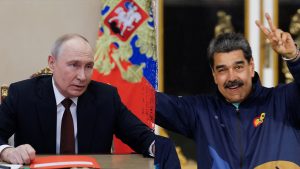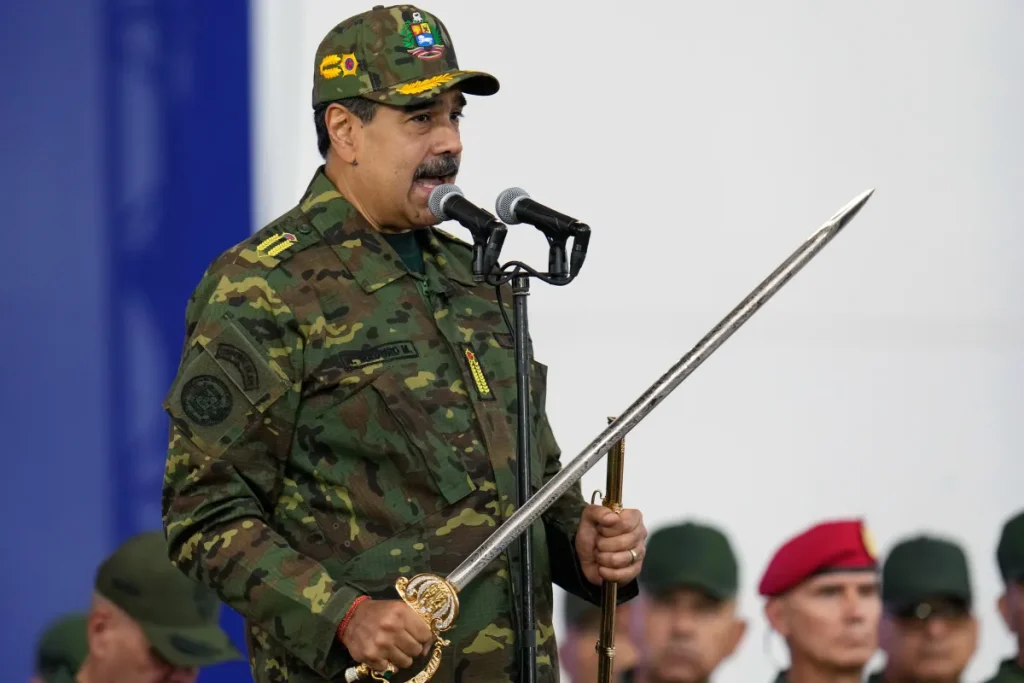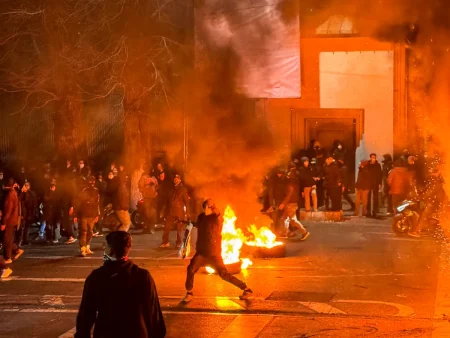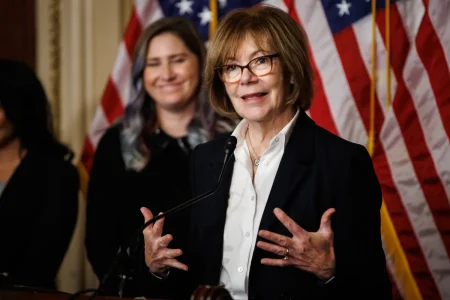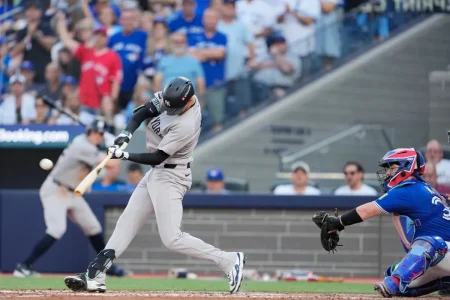Venezuela’s Defiant Stand: Maduro Rallies Nation Against U.S. Pressure
In a dramatic display of national resistance, Venezuelan President Nicolas Maduro led tens of thousands of supporters through the streets of Caracas on Tuesday, framing the current standoff with the United States as an existential battle for Venezuela’s sovereignty. Dressed in military fatigues and wielding a ceremonial sword, Maduro delivered an impassioned address to the crowd gathered for the “Flag and Sword March of Liberator Simon Bolivar,” declaring, “We must be ready to defend every inch of this blessed land from imperialist threat or aggression, no matter where it comes from.” The demonstration, which spread across multiple Venezuelan cities, represented the most visible sign of escalating tensions between Caracas and Washington in years, as both nations appear increasingly entrenched in their positions. Maduro’s rallying cry of “Failure is not an option” resonated through streets filled with supporters carrying Venezuelan flags and banners condemning what they view as American aggression, all while the specter of U.S. military assets looming in nearby Caribbean waters added urgency to his message.
This showdown has emerged as one of the Western Hemisphere’s most volatile flashpoints, driven by a complex web of accusations and counter-accusations. The United States recently designated the so-called Cartel de los Soles, allegedly linked to high-ranking Venezuelan officials, as a foreign terrorist organization. This designation, coupled with the deployment of the USS Gerald R. Ford aircraft carrier and its strike group to the region, has dramatically raised the stakes. Washington characterizes these moves as necessary components of its counter-narcotics operations, pointing to alleged drug trafficking networks operating from Venezuelan territory. Since late August, U.S. forces have conducted operations against vessels suspected of drug trafficking in waters near Venezuela, actions the Maduro government has condemned as unlawful threats in international waters. For their part, Venezuelan officials vehemently reject the narco-trafficking allegations, portraying them instead as manufactured pretexts designed to justify potential intervention and access to Venezuela’s abundant natural resources.
The rhetoric from Caracas has been unequivocal in attributing economic motives to U.S. pressure. Venezuelan Vice President Delcy Rodríguez articulated this perspective on Monday, stating: “They want Venezuela’s oil and gas reserves. For nothing, without paying. They want Venezuela’s gold. They want Venezuela’s diamonds, iron, bauxite. They want Venezuela’s natural resources.” This narrative of resource protection has become central to the Maduro government’s messaging, allowing it to portray the confrontation not merely as a political dispute but as a defense of national patrimony against foreign exploitation. By mobilizing supporters and framing the crisis as a battle for sovereignty, Maduro has attempted to project an image of internal unity and resolve, despite the country’s ongoing economic struggles and international isolation. The nationwide demonstrations serve a dual purpose: signaling defiance to external pressures while reinforcing domestic solidarity around the government’s position.
The U.S. approach, meanwhile, has been characterized by increasing pressure through multiple channels. Beyond the military deployments and terrorist designations, Washington maintains a comprehensive sanctions regime targeting the Venezuelan economy and key officials. President Donald Trump, speaking while traveling to Florida for Thanksgiving, offered ambiguous signals about potential next steps, telling reporters, “If we can save lives, if we can do things the easy way, that’s fine. And if we have to do it the hard way, then that’s fine too.” This deliberately open-ended statement maintains strategic ambiguity about U.S. intentions, keeping diplomatic options theoretically available while not ruling out more aggressive measures. The deployment of the Ford carrier strike group—the world’s largest aircraft carrier and a formidable symbol of American military might—sends its own powerful message about Washington’s willingness to back its position with force if deemed necessary.
The human dimension of this geopolitical confrontation remains profound, with ordinary Venezuelans caught between economic hardship, political polarization, and now the looming threat of international conflict. Years of hyperinflation, food and medicine shortages, and mass emigration have already taken an immense toll on Venezuela’s social fabric. An estimated 7.7 million Venezuelans have fled the country since 2014, creating one of the world’s largest displacement crises. Those who remain face daily challenges in securing basic necessities, yet many still participated in Tuesday’s demonstrations—some out of genuine patriotic sentiment, others from loyalty to the government, and still others from a complicated mix of motivations. The prospect of further escalation threatens to deepen humanitarian concerns in a country already struggling with severe socioeconomic challenges, raising the stakes for all involved.
As both nations dig into their positions, the path forward remains uncertain and fraught with risk. Neither side appears willing to back down: Venezuela continues mobilizing its military and civilian supporters, while the United States maintains its pressure campaign through economic, legal, and military means. The immediate future likely depends on whether diplomatic channels can be meaningfully reopened or whether the current trajectory leads toward deeper confrontation. Regional stakeholders, including neighboring countries that have absorbed millions of Venezuelan migrants, watch nervously as tensions rise. The standoff has implications far beyond bilateral relations, potentially affecting regional stability, migration patterns, energy markets, and the broader geopolitical landscape of the Americas. What began as a political dispute has evolved into a multifaceted crisis with humanitarian, economic, and security dimensions that could reverberate throughout the hemisphere if not carefully managed by all parties involved.
